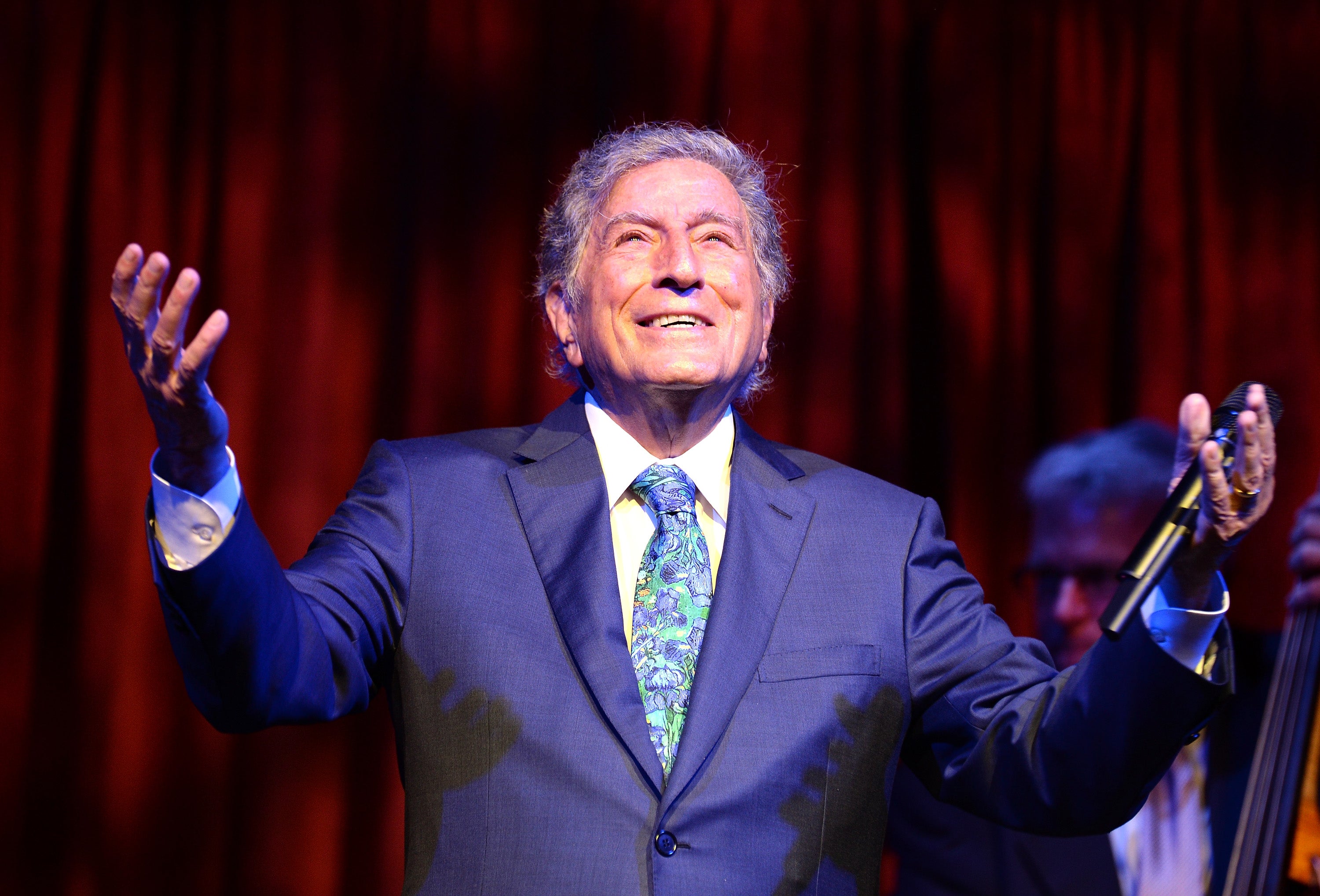Tony Bennett’s daughters sue their brother over late singer’s ‘$7m’ estate
The iconic jazz and pop singer died in 2023 at the age of 96
Your support helps us to tell the story
From reproductive rights to climate change to Big Tech, The Independent is on the ground when the story is developing. Whether it's investigating the financials of Elon Musk's pro-Trump PAC or producing our latest documentary, 'The A Word', which shines a light on the American women fighting for reproductive rights, we know how important it is to parse out the facts from the messaging.
At such a critical moment in US history, we need reporters on the ground. Your donation allows us to keep sending journalists to speak to both sides of the story.
The Independent is trusted by Americans across the entire political spectrum. And unlike many other quality news outlets, we choose not to lock Americans out of our reporting and analysis with paywalls. We believe quality journalism should be available to everyone, paid for by those who can afford it.
Your support makes all the difference.Tony Bennett’s two daughters Antonia and Johanna Bennett are suing their brother, D’Andrea “Danny” Bennett, after accusing him of mishandling their father’s assets.
Danny Bennett was the late jazz and pop singer’s manager and is the trustee of his estate. His sisters allege that he failed to disclose some of their father’s assets.
The lawsuit, filed Wednesday June 12 in New York, accuses Danny Bennett of not accounting for all of the proceeds from this year’s sale of Bennett’s music catalogue and certain image rights to the brand development firm Iconoclast.
The court filing claims that “it remains unclear what music assets (and other property) were or were not sold as part of the deal” because the sisters “have not been provided with various details of the transaction despite repeated requests.”
Another brother, Daegal “Dae” Bennett, and Tony’s widow, Susan Benedetto, were also named in the lawsuit.
The lawsuit further alleges that Danny Bennett “obtained personal benefits for himself and his company” from transactions, including the sale of memorabilia, made on behalf of Tony Bennett, the family trust and Benedetto Arts LLC.
The women claim their father earned over $100m from live performances in the last 15 years of his career but that his gross estate is purportedly valued at less than $7m.

The sisters are seeking unspecified “equitable relief” as well as a full accounting and inventory of the trust. The lawsuit demands Danny Bennett turn over receipts, disbursements, expenditures and tax returns.
“Although Danny and his counsel have provided piecemeal information and produced some documents to petitioners’ counsel, the information provided raises more questions than answers and fails to provide anything close to an accounting of Tony’s assets and financial affairs,” the court filing said.
Enjoy unlimited access to 100 million ad-free songs and podcasts with Amazon Music
Sign up now for a 4 month free trial (3 months for non-Prime members)
Enjoy unlimited access to 100 million ad-free songs and podcasts with Amazon Music
Sign up now for a 4 month free trial (3 months for non-Prime members)
The Independent has contacted Danny Bennett’s representatives for comment.
Tony Bennett died at the age of 96 on July 21, 2023. He left behind a legacy as one of the most masterful interpreters of the American Songbook of all time.
Known for his recordings of show tunes and jazz standards, Bennett released more than 70 albums over the course of his career, winning 19 Grammys.
Towards the end of his life, Bennett’s repeat collaborations with pop singer Lady Gaga introduced him to a new generation of fans.
Among his best-known hits were “Rags to Riches” and “I Left My Heart in San Francisco”, the latter of which became his signature song.
Bennett was born Anthony Benedetto in New York in 1936, the child of Italian immigrants. His father died when he was just 10 years old, leaving his mother, a seamstress, to raise him and his two siblings.
Bennett first rose to prominence in the 1950s, as a crooner known for recording commercially successful pop songs, including 1951’s “Because of You”. He would later describe his vocal identity as being “a tenor who sings like a baritone”.
His musical style quickly developed and he branched out into other musical forms, including show tunes and big band numbers.
Additional reporting by agencies

Join our commenting forum
Join thought-provoking conversations, follow other Independent readers and see their replies
Comments